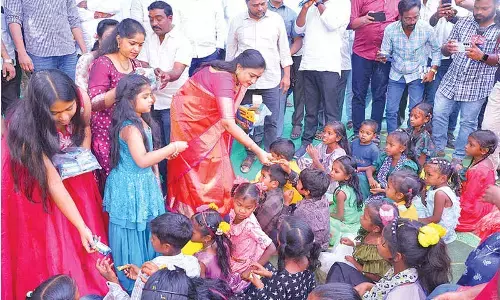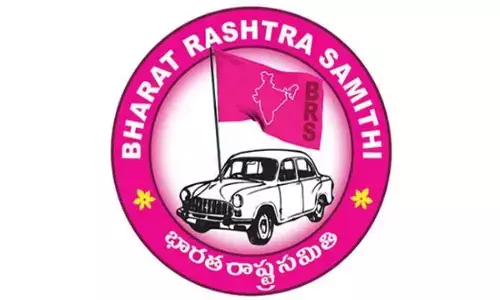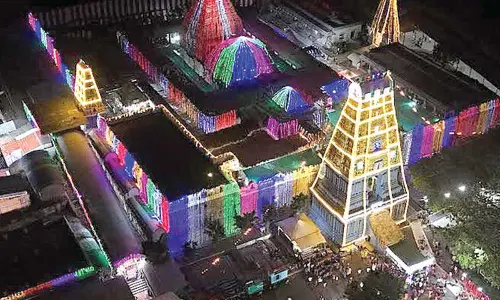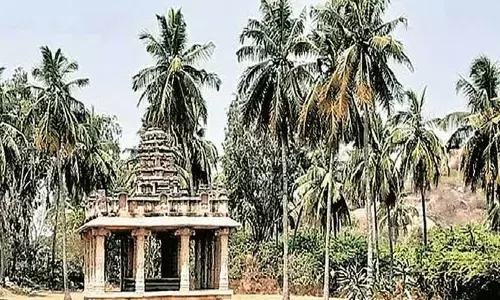Our Orwellian world
.jpg)
Our Orwellian world. The first thought that comes to our minds when the name of George Orwell is mentioned is his novella Animal Farm.
.jpg) The first thought that comes to our minds when the name of George Orwell is mentioned is his novella Animal Farm. It is an allegorical and dystopian novel, mocking Communism in general and Stalinism in particular. Though it was first published in August 1945, in England, and subsequently translated into almost all the major languages of the world, it has a never-ending appeal to all classes of people. From sociologists to political scientists, anyone who is interested in contemporary developments, can take a cue from the Animal Farm and interpret them.
The first thought that comes to our minds when the name of George Orwell is mentioned is his novella Animal Farm. It is an allegorical and dystopian novel, mocking Communism in general and Stalinism in particular. Though it was first published in August 1945, in England, and subsequently translated into almost all the major languages of the world, it has a never-ending appeal to all classes of people. From sociologists to political scientists, anyone who is interested in contemporary developments, can take a cue from the Animal Farm and interpret them.
The story revolves around animals in the manner of a fairy tale, but pokes fun at authoritarianism and its evolution from the principles of equality and social democracy and how it degenerates into dictatorship and personality cult. In Orwell’s own words, “Animal Farm was the first book to fuse political purpose and artistic purpose into one whole.” I think he succeeded more than what he intended for since the animals’ charter for discipline, sharing of duties and work, do’s and don’ts, equality and inequality, etc. as executed by a group of animals have become universal norms in bad governance. Their relevance finds an echo in many countries, loudest in authoritarian regimes and strong traces in countries where democracy is yet to take deep roots and among those that are running on class and feudal lines.
Incidentally, George Orwell was born in Motihari of Bihar in British India, on June 25, 1903, as Eric Arthur Blair when his father, Richard Blair, was working as an agent of the Opium Department of the Indian Civil Service. In memory of the literary genius, a statue had been erected some years ago near the house where he was born. His innumerable fans fondly remembered him on his 63rd death anniversary on January 21 by garlanding his statue in Motihari. They might have recalled his literary masterpieces, little realising that his satirical writings were so prophetic that the present political and administrative scenario in this country is not far from what he described in Animal Farm. From fable to reality, indeed, is déjà vu.
Take, for instance, the most quoted and adopted to changing times, “All animals are equal but some animals are more equal than others.” In other words, the Orwellian-ism “some are more equal than others” can’t find a better place than India to demonstrate its veracity in the country’s growing VIP culture. From Gods’ abodes to highways, single, double and triple V-tagged high and mighty –or sundry – have the first right to move ahead of others by being the chosen few by a vast majority of people. Such singular triumph automatically separates them from the rest of the masses and confers on them special privileges, elevating them to an all-important class of people.
It doesn’t matter whether they are selected or elected by the people, the VIPs are more than other mortals in gaining entry to temples. While those who elect them in the hope of serving the people have to endure all kinds of hardships standing hours at a stretch in queues for a glimpse of the Lord, the very important persons are taken inside with all the honours reserved for the royalty of the yore and given divine blessings. Similarly, when the VIPs travel by road, traffic should come to a standstill and traffic lights turn green all the way. They need not even pay toll on national highways. Among other privileges the VIPs enjoy are bodyguards and A to Z security depending upon how important the person is and threat perceptions to his/her life.
Orwell’s incisive observations and political comments he made in his writings may look like lampooning the establishment; but they fit the current political scenario in more than one way. For instance, “People sleep peaceably in their beds at night only because rough men stand ready to do violence on their behalf.” Or, “In a time of universal deceit - telling the truth is a revolutionary act.” Really! Others of this genre: “Political language... is designed to make lies sound truthful and murder respectable, and to give an appearance of solidity to pure wind. Freedom is the right to tell people what they do not want to hear. In our age there is no such thing as 'keeping out of politics.' All issues are political issues, and politics itself is a mass of lies, evasions, folly, hatred and schizophrenia.”
Not all agree with his political sarcasm. For many, it is born out of hatred for Communism and Stalinism since Orwell was a social democrat and believed in personal freedoms and welfare of people. Nevertheless, when self-importance takes precedence over all other things in a state and a culture of self-assumed superiority starts growing, we wonder whether we are living in an Orwellian world. Alice in the Wonderland, of course, is a fable; Animal Farm has a sack full of grains of truth.

















